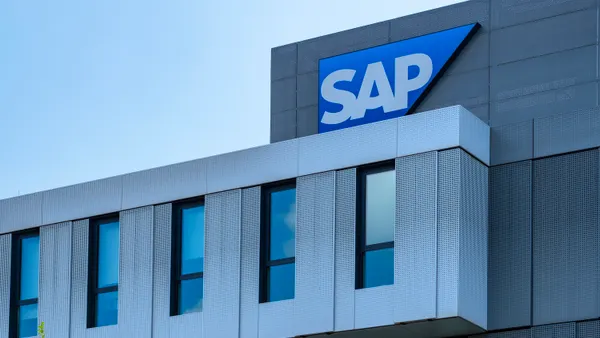Dive Brief:
-
AT&T is migrating "much of its" workforce to Microsoft 365, building on plans to become a "public cloud first" company by 2024, AT&T and Microsoft announced Wednesday in a deal focused on cloud, AI and 5G. AT&T had 268,220 employees, according to its 2018 annual report.
-
The communications company will also move applications that are not part of network infrastructure to Microsoft Azure. The deal is worth more than $2 billion, CNBC reports.
-
As part of the partnership, Microsoft intends to design, test and build edge computing offerings to integrate into AT&T's growing 5G network. AT&T plans on having 5G available nationwide by the first half of 2020.
Dive Insight:
AT&T's deal with Microsoft is its second major strategic technology announcement this week. On Tuesday, AT&T Business and IBM signed a joint technology agreement, which is reportedly worth billions and expands on a 20-year history between the two companies.
Big Blue will serve as AT&T Business' primary developer and provider of operational applications in the cloud. In turn, AT&T Business will become IBM's software-defined networking provider.
AT&T is in a curious position. It's an enormous company spanning three sectors — technology, media and telecommunications. Its size and reach demands a streamlined technology portfolio and a vision for what's to come in the years ahead, especially as edge computing increases its business impact.
As part of that, the company is focusing on cost optimization. This year AT&T plans to continue the transition from hardware to software-based technology, which is more efficient and less expensive, the company said in its 2018 annual report. It also expects cost savings from efforts like modernizing its customer services and ordering functions.
AT&T's recent deals with IBM and Microsoft center around a two-sided business model. Each partnership is driven by what the companies can leverage from one another, said Monica Zlotogorski, senior director of research and advisory at Gartner, in an interview with CIO Dive.
The deals speak to the future of digital, where siloed competition makes way for healthy cooperation.
It's an important step in the telecommunications space, which is expensive and asset intensive, said Zlotogorski. Why invent the technology "wheel" when businesses could instead leverage assets across partnerships and go to market?
What AT&T is doing is not unique in the industry, either. Companies such as Verizon and Telefónica, for example, are also investing in 5G capabilities and looking toward shared resources, transitioning from managing areas like cloud and data centers.
These companies are focusing on the competitive advantage, exploring investments in 5G and efficiently allocating resources, people and money, according to Zlotogorski.
"Technology is not a differentiator, per se, but actually the execution of things," Zlotogorski said. "Execution is everything."












